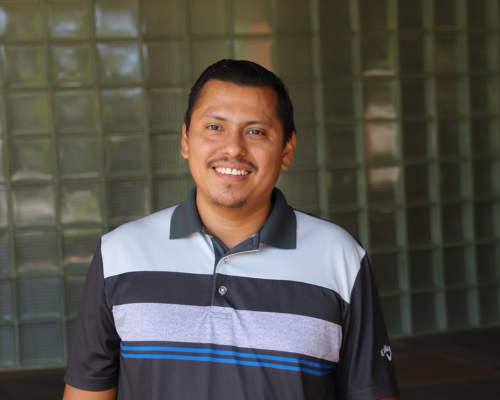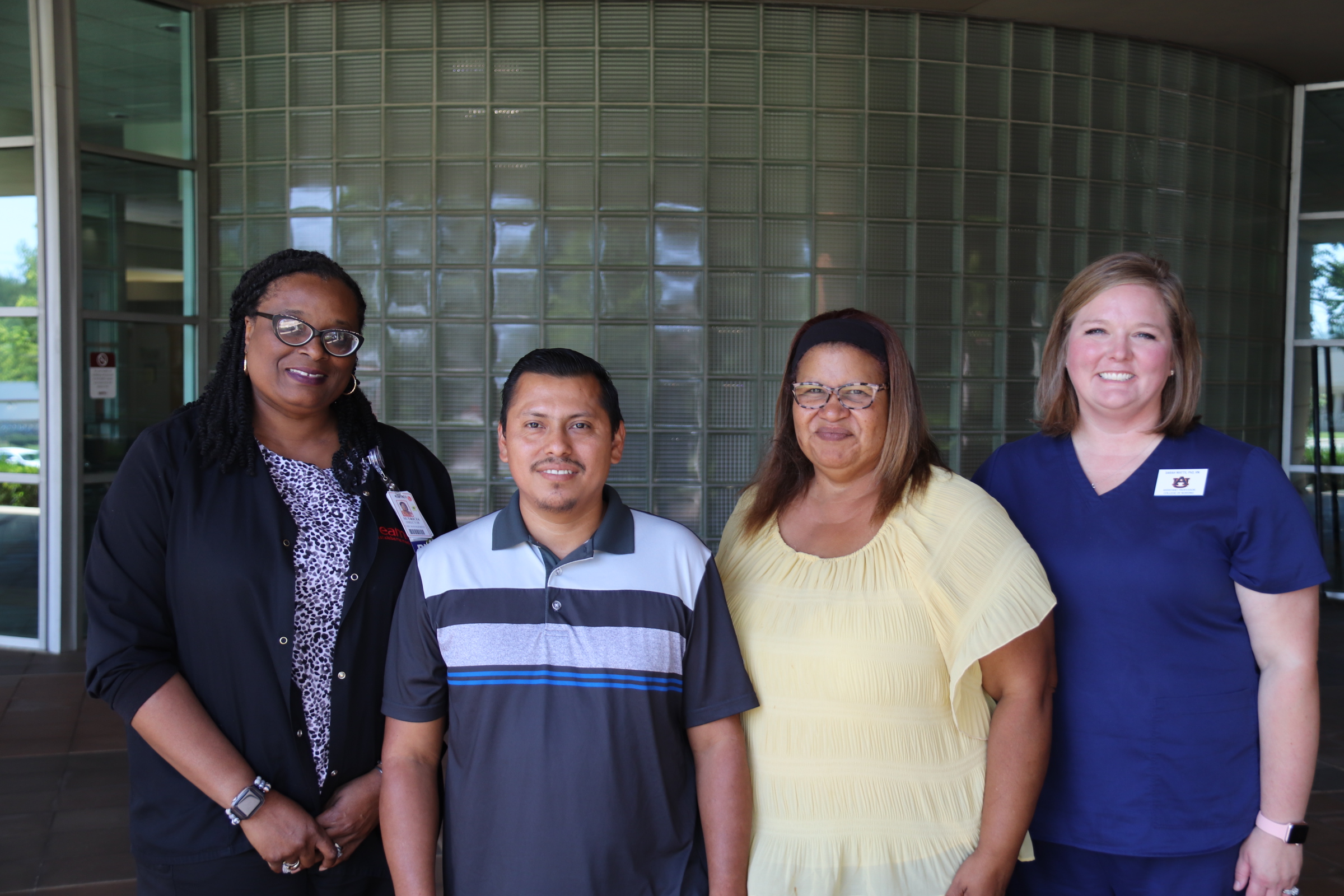Access to Mobile Wellness Clinic Helps Save Patient
August 8, 2023
Categories: News
Tags: Diabetes, Health Equity
OPELIKA, Ala.- Victor Chavez knew something wasn’t right. He felt exhausted, his eyesight was worse than it had ever been, and he battled migraines that made driving almost unbearable.
He remembered seeing a flyer from a group of friends at the Esperanza House mentioning the Opelika Neighborhood Mobile Wellness Clinic bus would be near his home offering free health checks. Reluctantly, he decided he could not put off a check any longer. That visit would save his life.
“I visited the bus because I wasn’t feeling well at all, and knew I had to see someone,” Chavez said. “I thought I’d just go there and be told what was going on, but I had no idea the process would eventually bring me to the hospital.”
The normal range for blood sugar for a man Chavez’s age, 36, is between 70-120. During his visit to the mobile clinic, his blood sugar range was so high that it did not even register on the device. Chavez had been living with undiagnosed Type 2 diabetes, and his condition showed the consequences.
Sutricia Johnson, who leads the mobile clinic and serves as director of Case Management at East Alabama Medical Center, recognized the severity of the situation. After further investigation, she directed Chavez to the Emergency Department at EAMC.
“I looked at him when I checked his blood sugar and said to him, ‘you can’t go anywhere right now until I figure out what’s going on, because we’ve got to get you where you need to be,’” Johnson said. “When he got to the ER, his blood sugar was between 400-500, which is way over normal, so he was admitted to the hospital.”
Chavez stayed at the hospital for three days, until his blood sugar range receded into normal range. This was not his first encounter with diabetes. He’d lost a friend in Guatemala who was only 40 years old after he failed to receive care in time. Chavez’s sister also has diabetes.
“Most of us men don’t regularly check on our health, because we are afraid to be sick and don’t want to hear we are sick,” Chavez said. “I didn’t really want to ask for help, but I’m glad that people wanted to help me.”
After discharging from the hospital, Chavez connected with the Diabetes and Nutrition Center (DANC), a service of East Alabama Medical Center, and now has regular appointments. At DANC, he receives care and guidance on how to improve his health and maintain his diabetes.
Chavez says he now has gotten into a routine of regularly testing his blood sugar levels, eating a healthier diet and drinking more water. He says he can see a major difference in his health since the clinic visit.
“No drinks with sugar, and drinking only water can get hard sometimes,” Chavez joked. “It’s coming along well. I can see changes such as not being as tired as before or not as weak as before, and my eyesight is much better.”
The crew from the clinic continue to stay in touch with him and are glad to see him doing well.
“After his diagnosis, he came back for a checkup and his blood sugar was within the normal limits, so I just lost it and started high-fiving him and dancing,” Johnson said. “I was so happy for him.”
Expanding access to care for underserved communities is part of the mission of the Mobile Wellness Clinic. Odalys Silvera serves as the executive director of Esperanza house, a non-profit organization with the mission to improve the quality of life for Hispanic children and families. She saw a need to improve access to healthcare for Hispanic families and worked with Johnson to bring the bus to a welcoming location for the local Hispanic community. Silvera has been instrumental in informing Hispanic community members, like Chavez, about the Mobile Clinic Bus, encourage them stop by for screenings, and graciously serve as an interpreter on the bus.
Sarah Watts, an assistant professor at Auburn University’s College of Nursing and a volunteer nurse at the Wellness Clinic, believes that partnerships between the clinic and organizations like Esperanza House are crucial to raising awareness and removing barriers to care.
“I love the partnership we have with Esperanza House, and the community they have,” Watts said. “I feel like it’s a great partnership to provide increased access to care as transportation is one of the biggest barriers to accessing care, and the bus definitely removes that.
"Many of our Hispanic men and women don’t get checked and get the care that they need, so it makes us excited to be there for this community with the bus,” Watts added.
Since his visit, Chavez has encouraged other men in his community to visit the bus and get regular checkups and has even brought a friend who has been experiencing health issues.
“The visit to the clinic ended up being a wonderful experience for me,” he said. “I’m glad I was able to receive help for something I didn’t even know about. It was very helpful for me to be able to come to the bus and receive care.”

Victor Chavez (center left) poses for a photo with Sutricia Johnson (left), Odalys Silvera (center right) and Sarah Watts (right).
-###-
About East Alabama Health
East Alabama Health encompasses East Alabama Medical Center in Opelika, EAMC-Lanier in Valley, the Spencer Cancer Center in Opelika, the Auburn Medical Pavilion and a host of other key medical clinic and practices that help provide a continuum of care to patients throughout an 11-county area. EAMC is a 314-bed regional referral hospital with a 26-bed Skilled Nursing Facility, while EAMC-Lanier provides inpatient services as well as a nursing home, an acute rehab unit and an ambulatory surgery center. East Alabama Health employs about 3,500 people and is the second largest employer in the region, trailing only Auburn University. For more information, visit www.eastalabamahealth.org.


